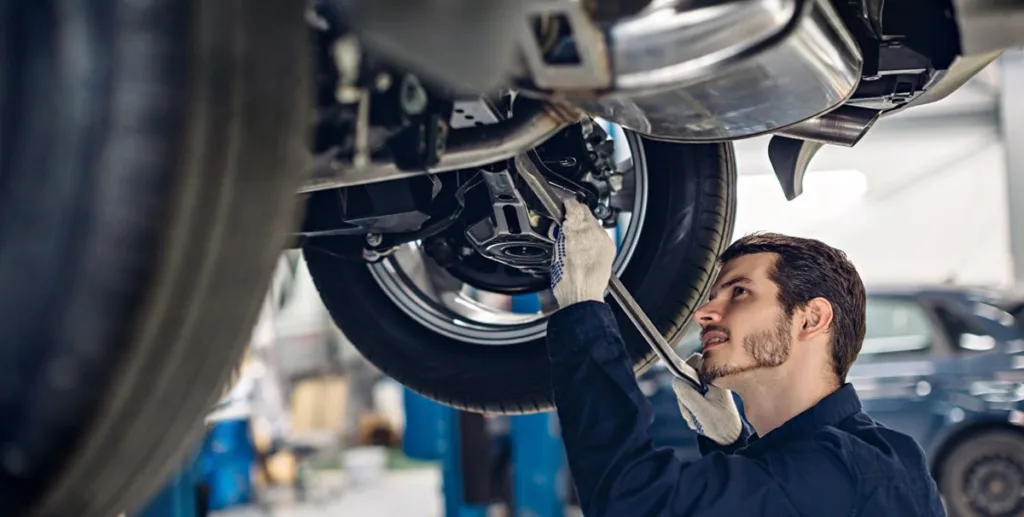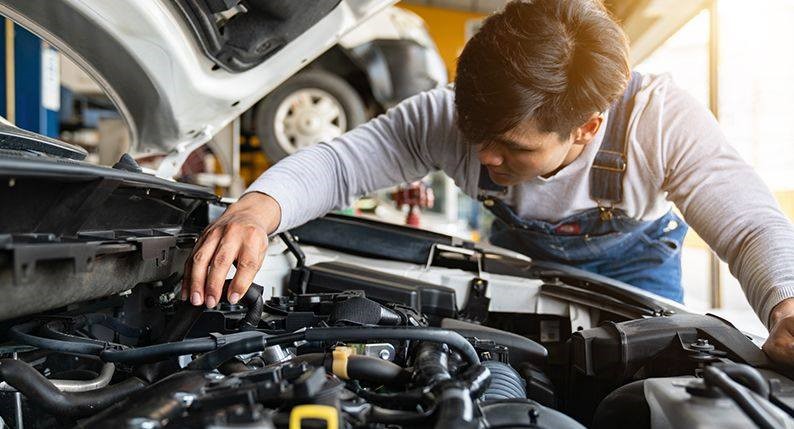All Categories
Featured
When your cars and truck overheats, it can seem like a major emergency, but staying tranquil and adhering to the best steps can prevent major engine damages and assistance get you back on the road safely. In this blog post, we'll discover what to do if your vehicle overheats and offer preventative tips to decrease the risk of overheating in the future.
What to Do If Your Cars and truck Overheats. If your vehicle starts to overheat is to draw over to a risk-free place as soon as possible, pull Over to a Safe Area The very first and most essential action. Activate your hazard lights and assist your vehicle to the shoulder or right into a car park. Keeping your cars and truck running while it's overheated can create extreme damage to the engine, so it's important to shut the engine off right now.
Allow the Engine Cool Once you have actually securely stopped, permit the engine to cool off. You must never attempt to open the radiator cap while the engine is still hot, as the release of vapor or warm coolant can create burns. Wait a minimum of 15-20 minutes to allow the engine temperature level to drop to a much safer degree prior to continuing.
![]()
Inspect the Coolant Degree After the engine has actually cooled down, inspect the coolant levels by evaluating the tank or radiator. Leading it off with a mix of coolant and water (as defined by your lorry's supplier) if it's reduced. Always utilize caution when opening the coolant storage tank, as pressure may have constructed up.
Try To Find Noticeable Leakages While you wait on the engine to cool, aesthetically check the radiator, hoses, and coolant reservoir for any visible leakages or fractures. A leaking radiator or tube is a typical source of overheating. If you find a considerable leakage, it's far better to call a tow solution than danger driving additionally and triggering extra damage.
Reactivate the Engine After enabling the engine to cool and ensuring the coolant is complemented, begin the engine and keep track of the temperature scale. If the temperature remains to increase swiftly, it's finest to close the engine off and require roadside aid or a tow to the local mechanic.
![]()
How to Prevent Overheating in the Future. Consistently Inspect Coolant Levels One of the easiest methods to avoid getting too hot is by maintaining the right level of coolant. In time, coolant can evaporate, so on a regular basis inspect the coolant levels in the reservoir. Low coolant degrees can cause the engine to get too hot swiftly, so leading it off as needed.
Check the Radiator The radiator plays an essential duty in maintaining the engine cool. Occasionally examine the radiator for any type of obstructions, dust, or particles that can block air movement. If you observe any indicators of damages, such as corrosion or leakages, have it fixed or changed asap.
Replace the Thermostat and Water Pump A malfunctioning thermostat or water pump is a typical root cause of getting too hot. The thermostat manages the circulation of coolant, while the water pump circulates it with the engine. If either part is defective, it can stop proper cooling. Have your mechanic examine these components on a regular basis and change them when required.
Flush the Air conditioning System In time, coolant can degrade and come to be ineffective, causing a build-up of debris in the system. Flushing the cooling system every 30,000 miles, or as advised in your car's manual, aids to eliminate any sludge or build-up and makes sure the cooling system is functioning effectively.
Screen the Problem of the Pipes The hoses in your lorry's air conditioning system can break or split in time. Evaluate the pipes for any type of indicators of wear, such as bulging, splits, or leaks, and replace them if required. Avoiding coolant leakages can go a long way in preventing getting too hot.
![]()
Drive Properly Aggressive driving, such as increasing swiftly or driving at broadband, places additional pressure on your engine and its cooling system. Try to drive at moderate rates, particularly on hot days or when driving on steep inclines, to decrease the opportunities of overheating.
Avoid Overloading Your Automobile Carrying extreme weight in your automobile places anxiety on the engine and cooling system. Always be mindful of your vehicle's weight limitation, specifically if you're transporting hefty loads, pulling a trailer, or driving fars away in hot climate.
Verdict. A getting too hot vehicle can be a frightening experience, yet understanding how to respond and stop it can save you time, money, and possible engine damage. Always check your coolant degrees, evaluate key parts like the radiator, thermostat, and hose pipes, and adhere to a regular upkeep routine. By remaining on top of your automobile's cooling system, you can minimize the danger of getting too hot and delight in a smoother, much safer driving experience.
What to Do If Your Cars and truck Overheats. If your vehicle starts to overheat is to draw over to a risk-free place as soon as possible, pull Over to a Safe Area The very first and most essential action. Activate your hazard lights and assist your vehicle to the shoulder or right into a car park. Keeping your cars and truck running while it's overheated can create extreme damage to the engine, so it's important to shut the engine off right now.
Allow the Engine Cool Once you have actually securely stopped, permit the engine to cool off. You must never attempt to open the radiator cap while the engine is still hot, as the release of vapor or warm coolant can create burns. Wait a minimum of 15-20 minutes to allow the engine temperature level to drop to a much safer degree prior to continuing.

Inspect the Coolant Degree After the engine has actually cooled down, inspect the coolant levels by evaluating the tank or radiator. Leading it off with a mix of coolant and water (as defined by your lorry's supplier) if it's reduced. Always utilize caution when opening the coolant storage tank, as pressure may have constructed up.
Try To Find Noticeable Leakages While you wait on the engine to cool, aesthetically check the radiator, hoses, and coolant reservoir for any visible leakages or fractures. A leaking radiator or tube is a typical source of overheating. If you find a considerable leakage, it's far better to call a tow solution than danger driving additionally and triggering extra damage.
Reactivate the Engine After enabling the engine to cool and ensuring the coolant is complemented, begin the engine and keep track of the temperature scale. If the temperature remains to increase swiftly, it's finest to close the engine off and require roadside aid or a tow to the local mechanic.

How to Prevent Overheating in the Future. Consistently Inspect Coolant Levels One of the easiest methods to avoid getting too hot is by maintaining the right level of coolant. In time, coolant can evaporate, so on a regular basis inspect the coolant levels in the reservoir. Low coolant degrees can cause the engine to get too hot swiftly, so leading it off as needed.
Check the Radiator The radiator plays an essential duty in maintaining the engine cool. Occasionally examine the radiator for any type of obstructions, dust, or particles that can block air movement. If you observe any indicators of damages, such as corrosion or leakages, have it fixed or changed asap.
Replace the Thermostat and Water Pump A malfunctioning thermostat or water pump is a typical root cause of getting too hot. The thermostat manages the circulation of coolant, while the water pump circulates it with the engine. If either part is defective, it can stop proper cooling. Have your mechanic examine these components on a regular basis and change them when required.
Flush the Air conditioning System In time, coolant can degrade and come to be ineffective, causing a build-up of debris in the system. Flushing the cooling system every 30,000 miles, or as advised in your car's manual, aids to eliminate any sludge or build-up and makes sure the cooling system is functioning effectively.
Screen the Problem of the Pipes The hoses in your lorry's air conditioning system can break or split in time. Evaluate the pipes for any type of indicators of wear, such as bulging, splits, or leaks, and replace them if required. Avoiding coolant leakages can go a long way in preventing getting too hot.

Drive Properly Aggressive driving, such as increasing swiftly or driving at broadband, places additional pressure on your engine and its cooling system. Try to drive at moderate rates, particularly on hot days or when driving on steep inclines, to decrease the opportunities of overheating.
Avoid Overloading Your Automobile Carrying extreme weight in your automobile places anxiety on the engine and cooling system. Always be mindful of your vehicle's weight limitation, specifically if you're transporting hefty loads, pulling a trailer, or driving fars away in hot climate.
Verdict. A getting too hot vehicle can be a frightening experience, yet understanding how to respond and stop it can save you time, money, and possible engine damage. Always check your coolant degrees, evaluate key parts like the radiator, thermostat, and hose pipes, and adhere to a regular upkeep routine. By remaining on top of your automobile's cooling system, you can minimize the danger of getting too hot and delight in a smoother, much safer driving experience.
Latest Posts
Grab Special Auto Repair Offers in Chicago at Montclare Auto Repair
Published May 28, 25
1 min read
The Benefits of Consistent Auto Maintenance at Montclare Auto Repair Keeps Your Wallet Happy
Published May 24, 25
1 min read
Understanding Roofing Guarantees: What Homeowners Should Know
Published May 21, 25
1 min read
More
Latest Posts
Grab Special Auto Repair Offers in Chicago at Montclare Auto Repair
Published May 28, 25
1 min read
The Benefits of Consistent Auto Maintenance at Montclare Auto Repair Keeps Your Wallet Happy
Published May 24, 25
1 min read
Understanding Roofing Guarantees: What Homeowners Should Know
Published May 21, 25
1 min read